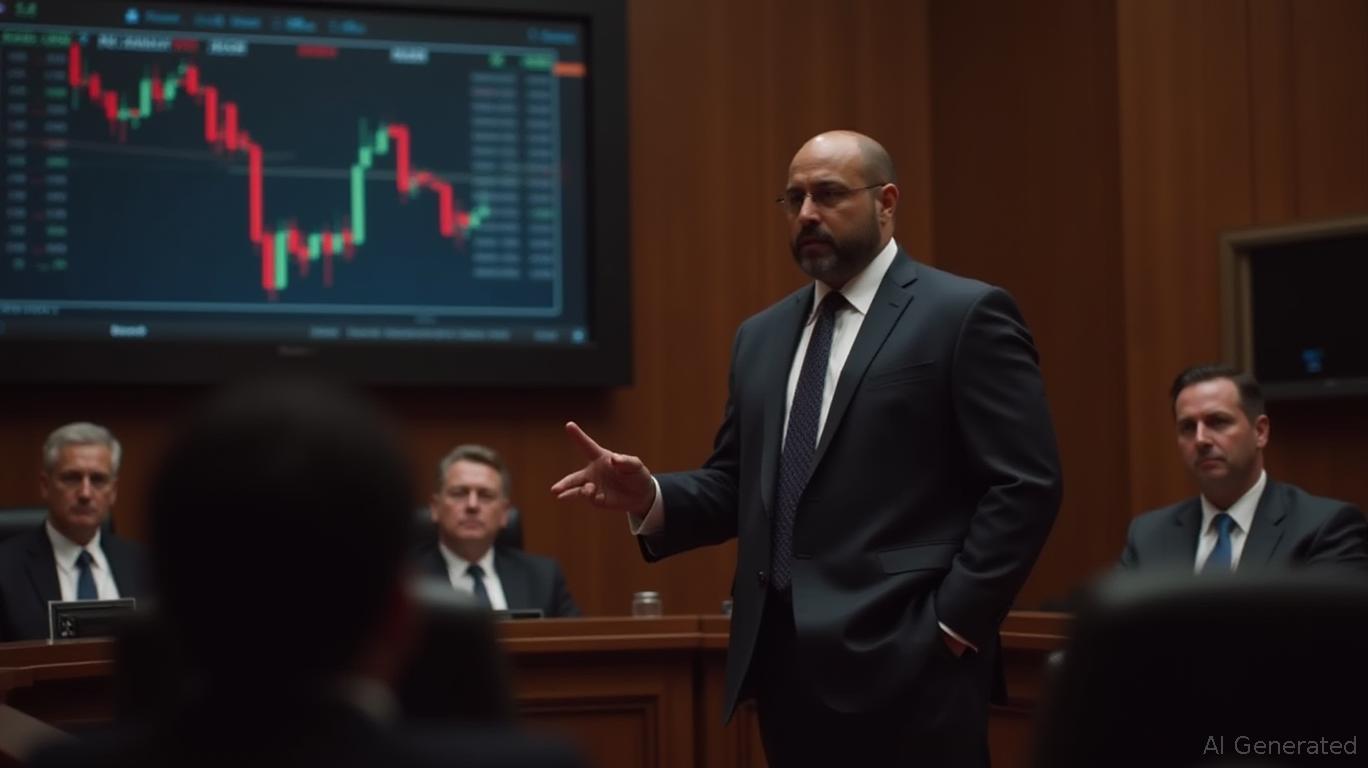Kalshi’s Federal Lawsuit Challenges CFTC Authority Amid Conflict With New York Sports Betting Prohibition
- Kalshi sues New York over sports betting ban, claiming CFTC's federal jurisdiction under the Supremacy Clause. - New York alleges Kalshi operates unlicensed contracts as "sports wagering," demanding compliance with state gambling laws. - Legal experts highlight federal courts' prior favor toward Kalshi, citing CFTC's 2020 DCM designation as regulatory shield. - Case could set precedent for state-federal regulatory conflicts, with Kalshi risking $50M+ annual revenue if banned in New York. - Mixed judicial
Kalshi, a prediction market platform registered with the CFTC, has initiated a federal lawsuit against the New York State Gaming Commission in an effort to halt the enforcement of the state's prohibition on its sports betting contracts. The company contends that the Commodity Futures Trading Commission (CFTC) has sole authority over derivatives trading under the Commodity Exchange Act, making New York's regulatory measures unconstitutional under the Supremacy Clause, as reported by a
The conflict arises from a cease-and-desist order issued by New York on October 24, which accused Kalshi of running an unauthorized mobile sports betting service. State officials classified Kalshi's offerings as "sports wagering" under local statutes, requiring the company to adhere to the same licensing, tax, and regulatory standards as conventional sportsbooks, according to

Legal analysts observe that Kalshi's tactic of initiating proceedings in federal court has proven advantageous in previous disputes. Daniel Wallach, an expert in gaming law, pointed out that this legal strategy shifts the focus to federal preemption rather than the contracts' legality. In comparable cases in Nevada and New Jersey, courts have issued preliminary injunctions in Kalshi's favor, determining that the CFTC's exclusive regulatory authority over swaps and futures overrides state laws, as referenced in a
The implications are significant for Kalshi, which projects that it could lose more than $50 million in annual revenue in New York if forced to discontinue its services. The company is also facing increasing regulatory scrutiny, with states such as Illinois and Arizona likely to adopt similar measures as New York. Wallach suggests that recent court decisions favoring state regulators, like Nevada's dismissal of Crypto.com's case, may encourage additional states to challenge prediction markets, as noted by Decrypt.
The New York gaming commission has yet to issue a public statement regarding the lawsuit but has reiterated its mandate to uphold state gambling regulations. The commission's cease-and-desist notice warned of "imminent civil penalties and fines" should Kalshi persist in offering sports event contracts, which the commission sees as undermining the state's regulated sports betting sector, according to Sports Betting Dime.
The resolution of this legal battle could influence the future relationship between state and federal authorities in the fast-changing prediction markets industry. With more than 1.2 million event contracts traded each year on CFTC-supervised platforms, the CFTC has established itself as a central authority in preventing inconsistent regulatory approaches, as highlighted by Coinotag.
Disclaimer: The content of this article solely reflects the author's opinion and does not represent the platform in any capacity. This article is not intended to serve as a reference for making investment decisions.
You may also like
Bitcoin News Update: Fed's Interest Rate Reduction: Striking a Balance Between Economic Expansion and Managing Inflation
- The Fed will cut rates by 25 bps at its October 28-29 meeting, targeting 3.75%-4.00%, marking its second 2025 reduction amid weakening labor markets. - Mortgage rates fell to 6.27% as of October 16, but analysts caution average rates remain above 6%, limiting refinancing incentives for most homeowners. - Crypto markets priced in the Fed's dovish pivot, with Bitcoin's open interest surging to $37.63 billion and $921M ETP inflows driven by easing expectations. - Global equity funds saw $11.03B inflows this

Traditional financial institutions are adopting blockchain technology as leading DeFi players indicate a new wave of mainstream acceptance
- Crypto market gains momentum as BlockDAG secures 20 exchange listings and raises $430M in presale, signaling institutional adoption potential. - Mantle (MNT) rebounds 7.33% near $1.71 with technical indicators suggesting a $1.74+ breakout, while Ondo (ONDO) consolidates ahead of potential $0.75+ surge. - Fed's 98.9% likely October rate cut and $11B equity inflows boost risk-on sentiment, with crypto benefiting from improved liquidity and macroeconomic easing. - Oracle and Securitize bridge DeFi-tradition

Bitcoin Updates: ZOOZ Acquires $10 Million Worth of Bitcoin in Response to Liquidity Issues, Highlights Strategic Strength
- ZOOZ Strategy Ltd. added $10M in Bitcoin (94 coins at $112,000/coin), raising its total holdings to 1,036 coins valued at $115M. - As first dual-listed Nasdaq-TASE firm, ZOOZ integrates Bitcoin as core treasury asset, offering NIS-denominated exposure to investors. - CEO Jordan Fried highlights Bitcoin's role as "resilient store of value," despite weak liquidity metrics (current ratio 0.77) and regulatory risks. - Related ZOOZ Power secured $180M private placement to expand capital, aligning with broader

Gold’s Surge Depends on Geopolitical Tensions Versus Hopes for Trade
- Spot gold rose to $3,980/oz on Oct 28, 2025, rebounding from prior losses amid shifting geopolitical risks and divergent analyst forecasts. - India's RBI boosted global demand by adding $31B to gold reserves in FY2026, citing strategic buffers against global uncertainty. - Banks remain split on 2026 gold prices: Citi cut its target to $3,800, while JPMorgan and Societe Generale forecast $4,753-$5,000. - Fed rate cut expectations and U.S.-China trade optimism pressured gold, though technical indicators hi
